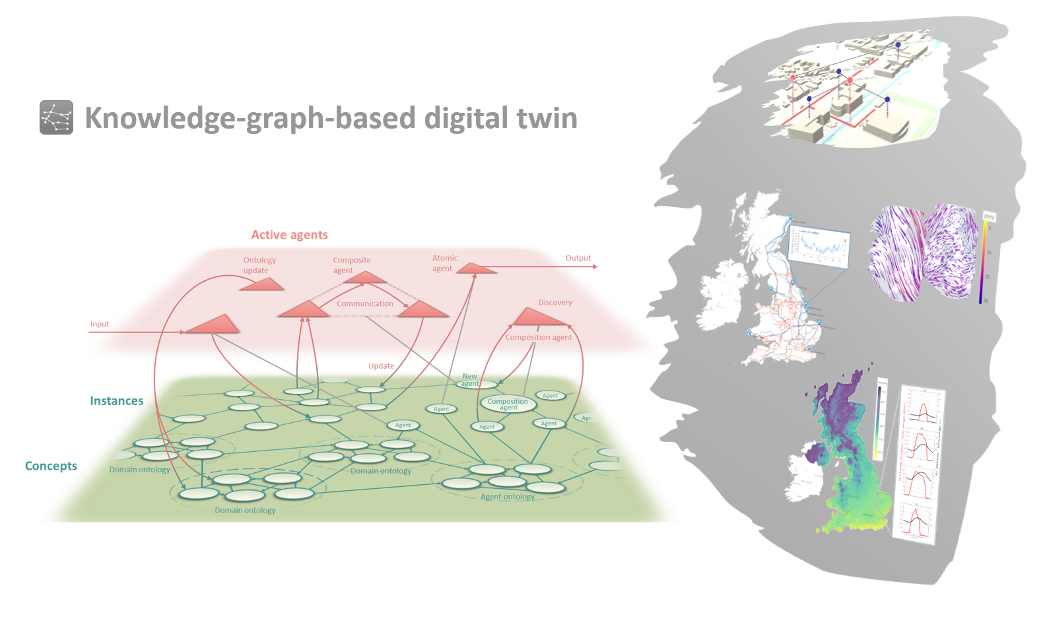Universal Digital Twin - A Dynamic Knowledge Graph
- Dynamic knowledge-graph approach proposed for Universal Digital Twin
- Enables distributed architecture and supports cross-domain interoperability
- Data is unambiguous, discoverable and accessible via uniform query interface
- Base world maintained by computational agents acting on knowledge graph
- Parallel worlds enable exploration of complex design spaces
 This paper introduces a dynamic knowledge-graph approach for digital twins and illustrates how this approach is by design naturally suited to realizing the vision of a Universal Digital Twin. The dynamic knowledge graph is implemented using technologies from the Semantic Web. It is composed of concepts and instances that are defined using ontologies, and of computational agents that operate on both the concepts and instances to update the dynamic knowledge graph. By construction, it is distributed, supports cross-domain interoperability, and ensures that data are connected, portable, discoverable, and queryable via a uniform interface. The knowledge graph includes the notions of a “base world” that describes the real world and that is maintained by agents that incorporate real-time data, and of “parallel worlds” that support the intelligent exploration of alternative designs without affecting the base world. Use cases are presented that demonstrate the ability of the dynamic knowledge graph to host geospatial and chemical data, control chemistry experiments, perform cross-domain simulations, and perform scenario analysis. The questions of how to make intelligent suggestions for alternative scenarios and how to ensure alignment between the scenarios considered by the knowledge graph and the goals of society are considered. Work to extend the dynamic knowledge graph to develop a digital twin of the UK to support the decarbonization of the energy system is discussed. Important directions for future research are highlighted.
This paper introduces a dynamic knowledge-graph approach for digital twins and illustrates how this approach is by design naturally suited to realizing the vision of a Universal Digital Twin. The dynamic knowledge graph is implemented using technologies from the Semantic Web. It is composed of concepts and instances that are defined using ontologies, and of computational agents that operate on both the concepts and instances to update the dynamic knowledge graph. By construction, it is distributed, supports cross-domain interoperability, and ensures that data are connected, portable, discoverable, and queryable via a uniform interface. The knowledge graph includes the notions of a “base world” that describes the real world and that is maintained by agents that incorporate real-time data, and of “parallel worlds” that support the intelligent exploration of alternative designs without affecting the base world. Use cases are presented that demonstrate the ability of the dynamic knowledge graph to host geospatial and chemical data, control chemistry experiments, perform cross-domain simulations, and perform scenario analysis. The questions of how to make intelligent suggestions for alternative scenarios and how to ensure alignment between the scenarios considered by the knowledge graph and the goals of society are considered. Work to extend the dynamic knowledge graph to develop a digital twin of the UK to support the decarbonization of the energy system is discussed. Important directions for future research are highlighted.
- This paper draws from preprint 264: The National Digital Twin of the UK – a knowledge-graph approach
- Access the article at the publisher: DOI: 10.1017/dce.2021.10



